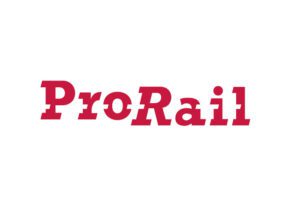Dieter van Delft of ProRail can pretty much be seen as the spiritual father of the Safety Culture Ladder. He is delighted to see that what was devised in 2011 for the rail industry is now having an impact and increasing safety awareness in more and more sectors. It has also borne fruit at ProRail.
ProRail was searching in how to improve rail safety when Van Delft started working on what would later become the Safety Culture Ladder (SCL) in 2011. 'It could do better. And to make the most impact, we focused on influencing human behaviour and attitudes. Thus, the SCL was born.' The SCL was initially conceived for the rail sector but eventually found acceptance in more sectors. This happened partly because of Tennet's participation. The broader support in 'BV Nederland' meant that ProRail was no longer the logical owner/manager of the SCL. A partner was therefore sought to take over and continue it, and this was found in NEN. NEN now bears responsibility for the further roll-out of the SCL, but Van Delft still sits on the board of experts for the SCL.
Awareness rises
The SCL has helped raise safety awareness in the rail sector, Van Delft believes. 'Using the SCL increased and changed the energy on the subject of safety. It was a matter of doing an audit first, though, to get a feel for how that goes. And to experience that an SCL audit is very different from a system audit as for VCA or ISO. So just start. Once it becomes clear that the SCL is about behaviour and attitude rather than procedures, rules or documents, a completely different view of safety emerges. That was nice to see with us too.'
Dialogue at all levels
The SCL has broadened the discussion and dialogue on safety in all layers at ProRail. 'People are asking themselves much more consciously what exactly safety is and what it means for a particular department or employee. It creates a common feeling about where our company stands in terms of safety, where we want to go and what that means then. Employee engagement and motivation has grown tremendously. It has provided an extra incentive to be more health and safety conscious.'
Challenge
Van Delft notes that the use and effect of the SCL within ProRail has made the company an example to other sectors of how to deal with safety awareness. Still, introducing the SCL was not always easy, especially for ProRail. According to Van Delft, the company is 'one big contract factory', he says somewhat jokingly. 'We outsource a lot of work and therefore work with many external parties, including in procurement, where I myself work. That means that when we wanted to do something with increasing safety, we also had to include our suppliers. The problem is that we only have a contract with our main contractor. And he in turn has subcontractors who in turn have subcontractors, et cetera. This makes it difficult to get the SCL's safety vision to that last person in the chain, the person who is tinkering on the track. That is a challenge, but it is the place where it should end up so we remain committed to that. The more parties start using the SCL soon, the easier it will be to get the thinking to those employees as well.'
